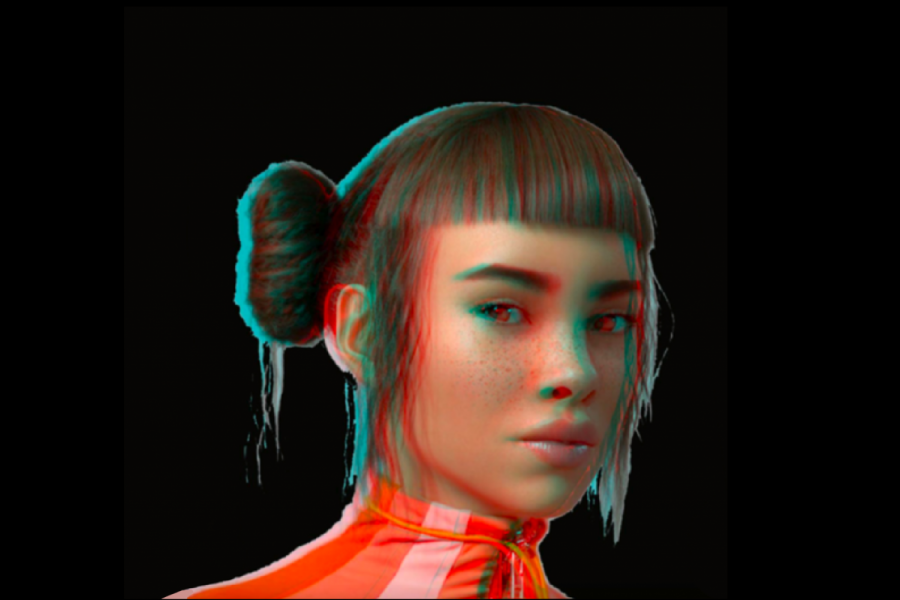Virtual Influencers and their Growing Popularity
November 26, 2019
You’re scrolling through your Instagram explore page. You glimpse a picture of a girl with space buns. Double-take, scrutinizing the picture, you question your eyesight. She casts a shadow. She has fly-aways and freckles. But something’s still off. She’s too perfect. You open her profile. Oh, she’s a robot. No wonder.
The robot in question is Lil Miquela, an up-and-coming virtual influencer. Virtual, in the sense that, well, she isn’t real. Constructed by a tech startup called Brud, Lil Miquela is simply an advancement of AI technology. As a trendsetter, Lil Miquela is not alone. Bermuda is another virtual being, supposedly also a creation of Brud. She isn’t quite as popular as Miquela, nor as high resolution, but still controversial in her own way.
But what prompted their creation? It turns out that the motivation behind their existence is money. According to online publishing company TechCrunch, this January, Miquela’s creators reportedly closed a $125 million investment deal with Spark Capital, a funder of numerous successful startups. The avatar boasts a 1.6 million follower count, to whom she advertises designer clothing, hair products and now even represents Samsung’s Team Galaxy.
As the original virtual influencer, Lil Miquela hid her identity as a robot for nearly two years. In those two years, her fanbase had already grown exponentially since her creation in April of 2016. As of now, Miquela has ventured into music, pictured with countless high-profile celebrities such as Diplo and Bella Hadid, and she has conducted interviews with the likes of Shane Dawson, Vogue and Refinery29. Her fame and expanding platform has drawn the eyes of companies seeking models for their products. Miquela and her virtual friends seek to become the future of advertising, fashion and commerce.
The virtual influencer trend could be a novelty technology, falling in and out of the mainstream, following hoverboards and smartglasses into the closet of discarded objects. Or they could replace the modelling industry. Lil Miquela’s team has defended her existence, claiming that her vocal support for causes such as Black Lives Matter, women’s reproductive rights and the LGBTQ+ community can inspire real change among her countless followers. That may be true for Miquela, but let’s return to Bermuda.
Bermuda is rumored to have been created by Brud as well. After a highly publicized “hacking” of Miquela’s account, supposedly a ruse to incite drama, this influencer rose through the ranks and now has a following count of 174 thousand. However, she’s the polar opposite of the socially conscious and fashion-forward Miquela, with comparably uncool clothing and radical right-wing views. A self-proclaimed “robot supremacist,” Bermuda represents the rather malicious side of virtual beings.
Another piece of opposition to their existence is the consequence of posing unachievable beauty standards, fetishization of cultural physical features and a general exploitation of natural beauty — especially when presented as foreign or unnatural. People in the fashion industry — and particularly of Instagram — already feel the pressure to Photoshop themselves or even undertake cosmetic surgery. In this new age of body positivity and self-acceptance, it’s interesting how we make it clear that even supermodels are incapable of reaching beauty standards set by non-human objects.
Furthermore, in an ad campaign with Bella Hadid for Calvin Klein, Miquela appeared to make out with Hadid. The video came under fire for two things: first, it was queer-baiting to present two women kissing as exotic and bizarre. Second, why can’t they cast an actual gay person? When a collection of pixels takes precedence over a truly underrepresented minority, something doesn’t feel right.
It’s important to stress that there virtual influencers are not actual people; they may have sentience, but they don’t have values or hold any beliefs. They are operated by shrewd businessmen and PR specialists who dictate their every move to thrust them higher into the spotlight. They are the epitome of social conformity, literally mirroring what is catchy to make a profit. As technology consumes our society, it becomes all the more important to keep ourselves grounded in reality.




